Mission complete: Rosetta’s journey ends in daring descent to comet
ESA’s historic Rosetta mission has concluded as planned, with the controlled impact onto the comet it had been investigating for more than two years.
Read the press release on the ESA website.
Watch how the final stages of Rosetta’s descent to the surface of the comet played out at ESA’s mission control: Rosetta’s final hour

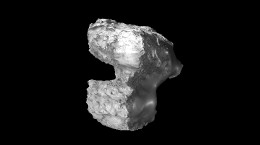
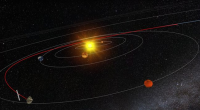
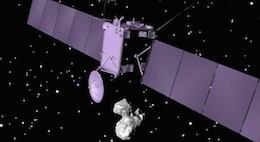
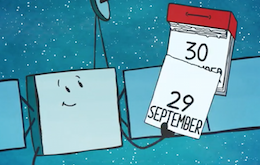
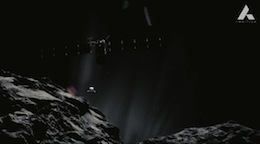
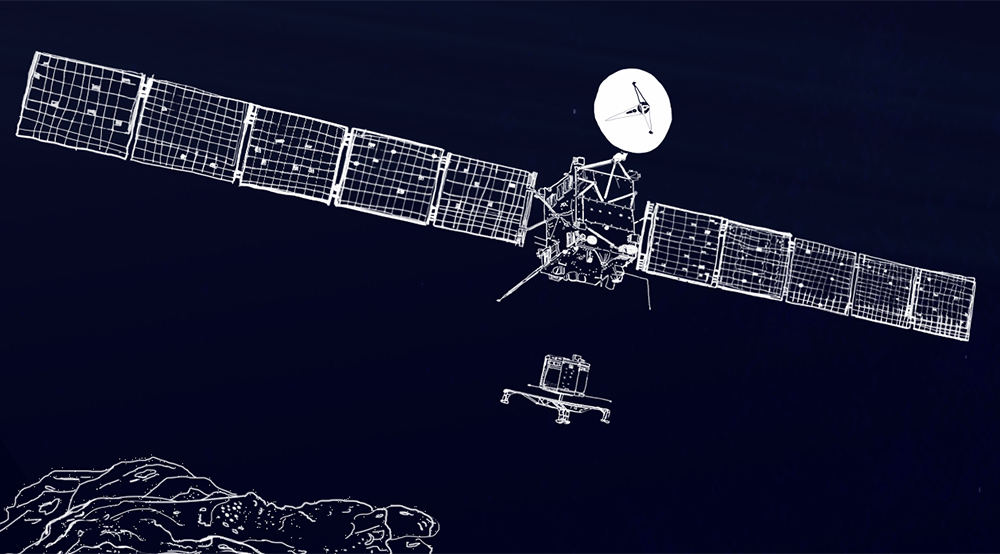
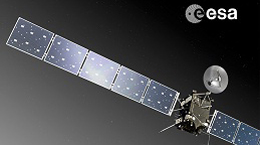
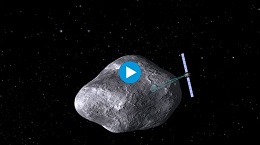
Discussion: 5 comments
Dear European Comet Explorers,
Thanks for getting us really close to you and your most exciting moments of the project.
This is the way motivating young people to become engineers and scientists.
It keeps the public interested and guarantees the budgets.
I’m impatiently waiting for a mission to Jupiter’s ice moons and dream a little of a live session showing pictures of the orbiter over Europa flying through the water fountain analyzing it for organic substances (or organisms directly?).
Think of the film “2010 – The year we make contact” and a similar scene with a russian orbiter analyzing Europa finding hints at life.
Wouldn’t it be another chance to fascinate people?!
And what a moment, if you really find proofs for life then …
Special thanks to the PR team. Great job.
My best wishes,
Michael
Wow, awesome!
Yes, well said, scientists are naturally “International”!
Good luck for everything in future..! I have to study for an interview, but I cannot stop viewing this video! Super interesting! Maybe I will be a scientist in my next life! 🙂
Thanks to Claudia and Emily for the clear and concise reporting, and still letting us see your enthusiasm and awe in this adventure.
You did great balance, even though it could some times resemble a middle school debate in the comments.
Will continue the the class at UMSF, and Planetary Org, and hope to see your work again on the Uranus Orbiter, or Trojan Mapping mission outreach !!
Fantastic mission. I certainly haven’t felt as involved, on an almost daily basis, in any other mission. Of course, there are other long lasting missions, such as Cassini and Curiosity, but I don’t get up in the morning thinking “ooh, I wonder what they’ve found today.”
And I’ve certainly never downloaded so many papers related to a single mission as I have with this one. It even had me scrambling around, grabbing papers from previous missions that I’d not seen in years. I’m sure I’ll still be collecting papers from this mission for years to come.
Many thanks to all the blog team for their articles, and their patience, particularly Emily and Claudia.
One thing it made me think of (and this won’t be popular); but if future missions are very dependent on funding, particularly long term missions like this one; and if they have such a high public profile on an almost daily basis – then is sponsorship/ advertising an area that could provide an additional source of funding?
If every selfie taken by Curiosity had a drinks company logo on it, what would that be worth? How much would a company pay to be associated with the first humans on Mars? Given how much is paid to be seen at events like the Superbowl, or to sponsor English football clubs, then it may be considerable.
I recall reading an Arthur C. Clarke short story, many years ago, called ‘Watch this Space’, where an astronaut sets himself up for life by being somewhat inventive with a gas release experiment!
https://en.wikipedia.org/wiki/Venture_to_the_Moon
Just a thought.
Hi Claudia,
As everyone else in the mission is, I’m sure, I am sad that the mission has ended. For me, there is so many more long term changes in comets that will be obvious at a future date. I am pencilling 2046 – 60 years after Giotto, 30 more years after Rosetta as a good time to revisit 67P and check in on 5 perihelions of changes.
In the meantime, Earth based observations will continue to improve and we will be able to keep track of such things as rotation rate and outgassing/dust/spectra as can be detected remotely.
As I have said on Twitter, I hope that at least the Rosetta Blog can have endless mission extensions – perhaps for as long as new papers based on the mission keep being written. I am sure that it can pay for itself, and be a continuing source of fruitful scientific discourse.